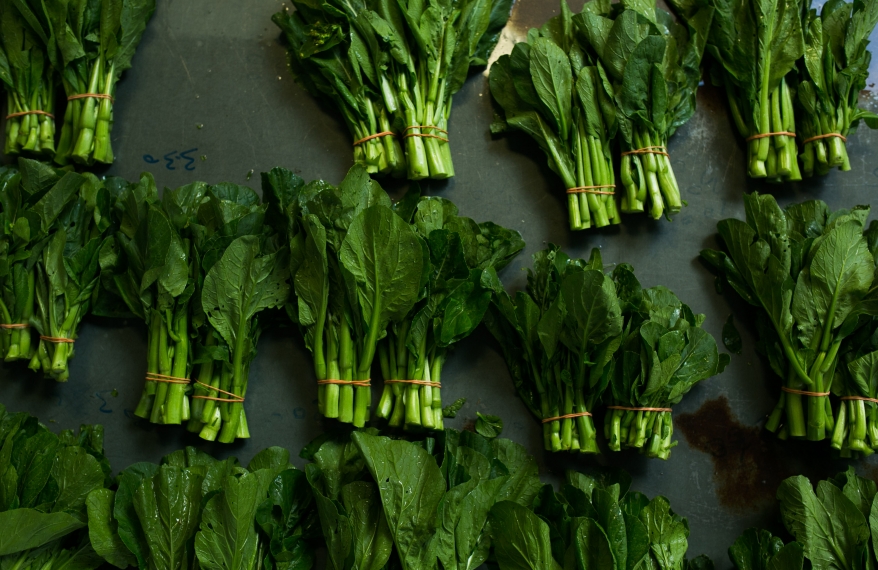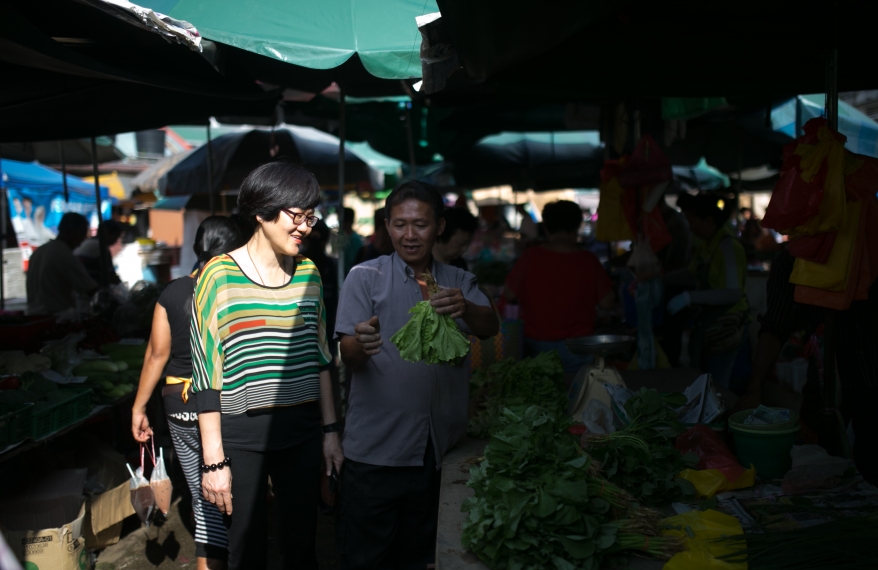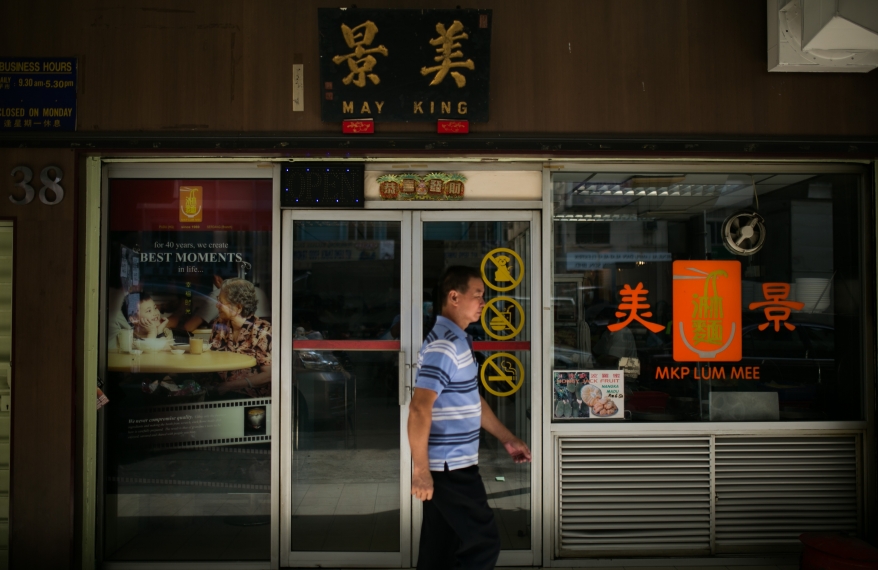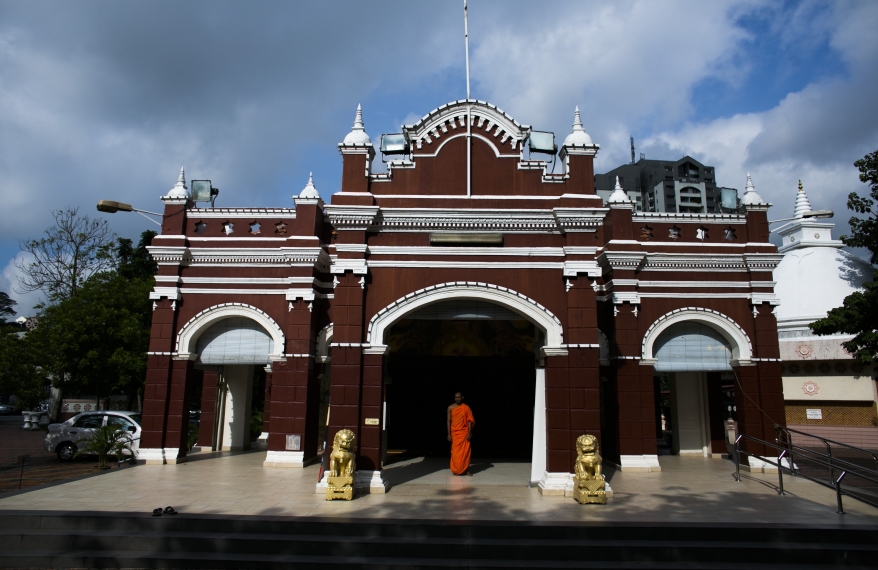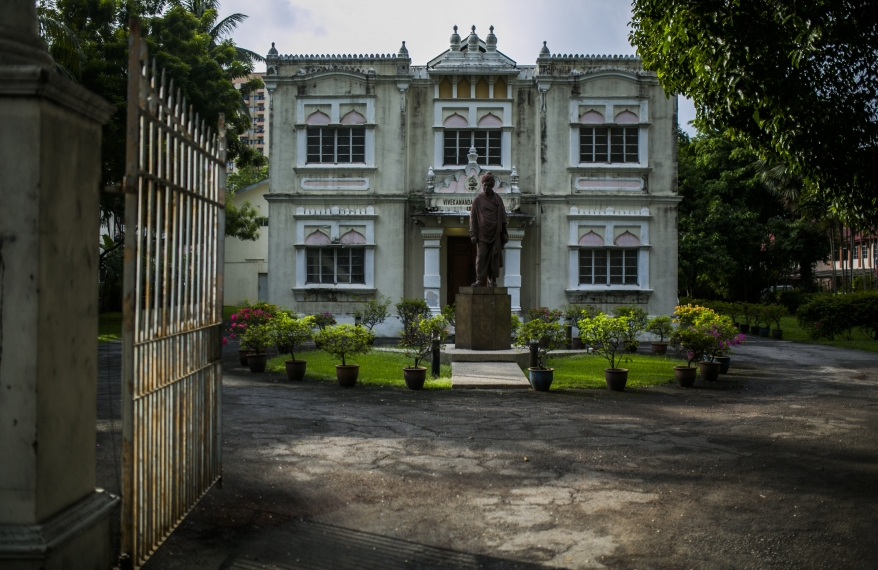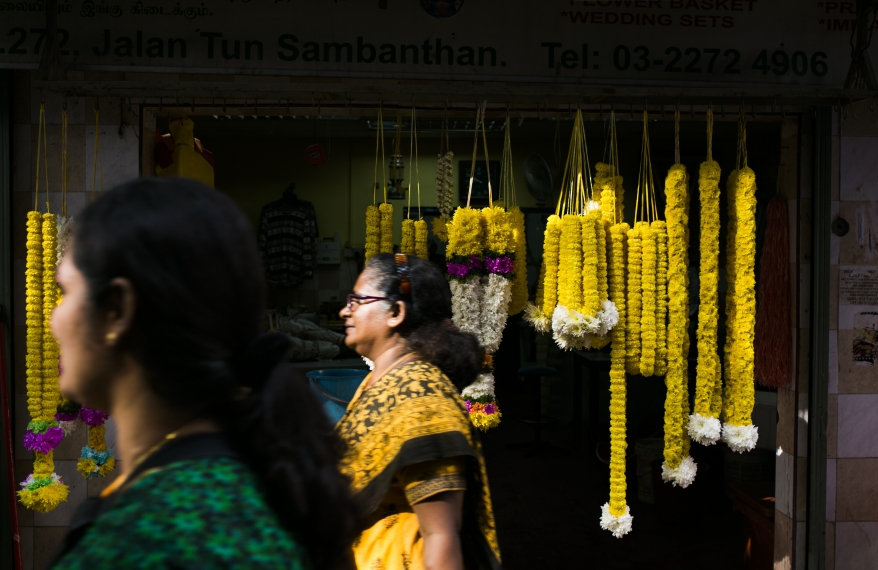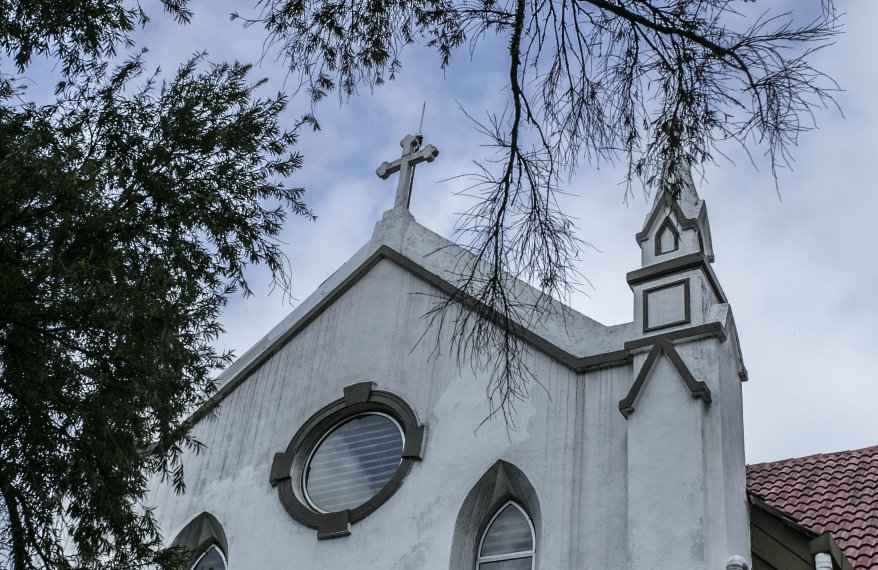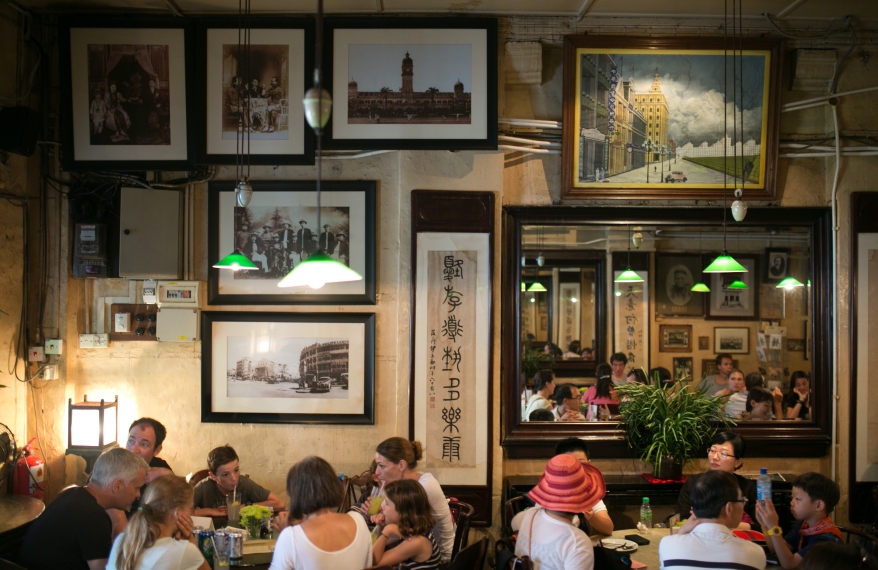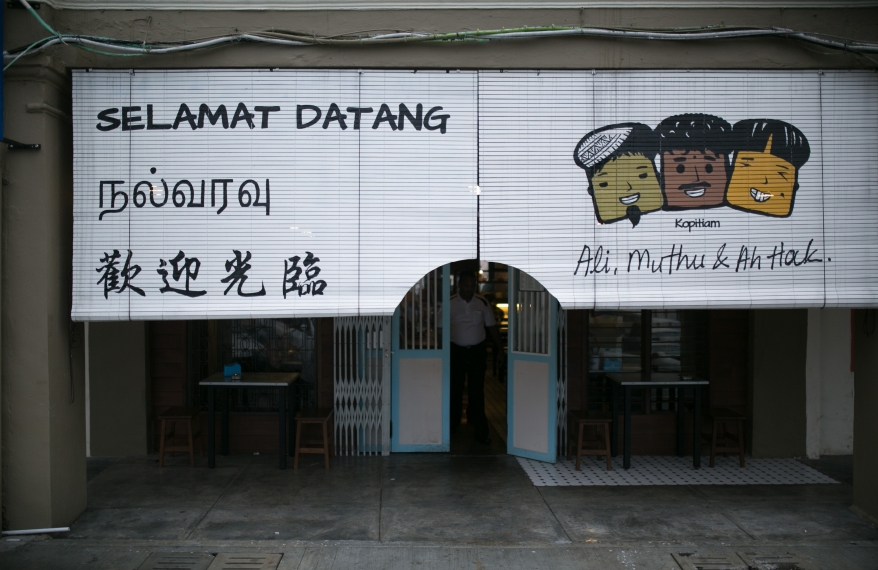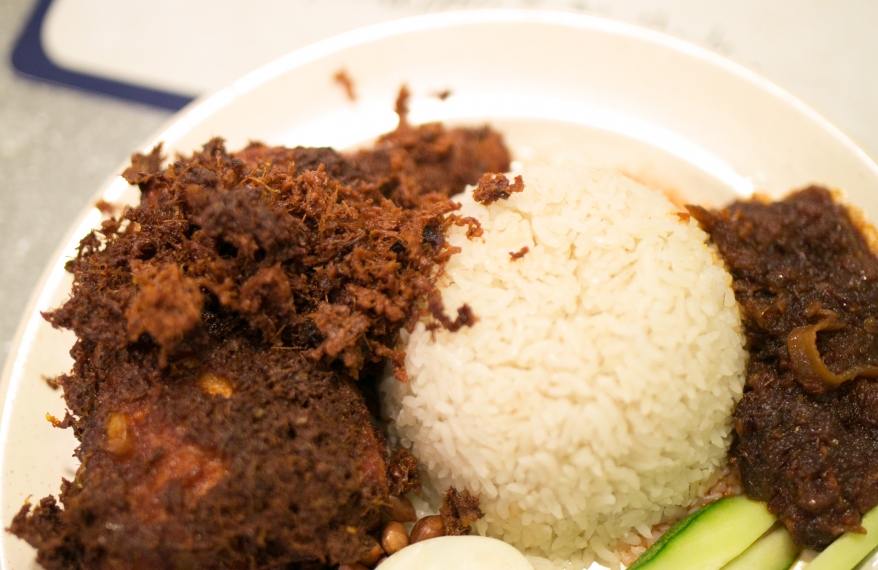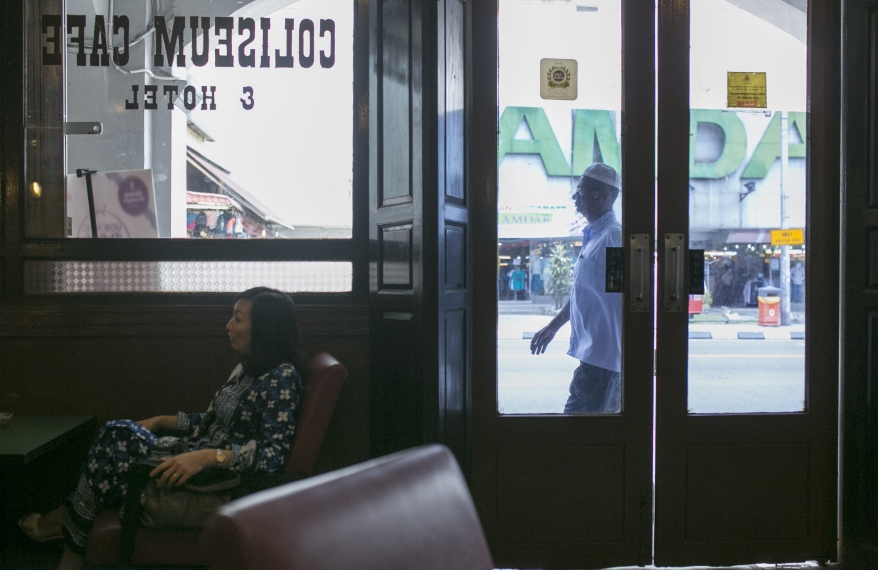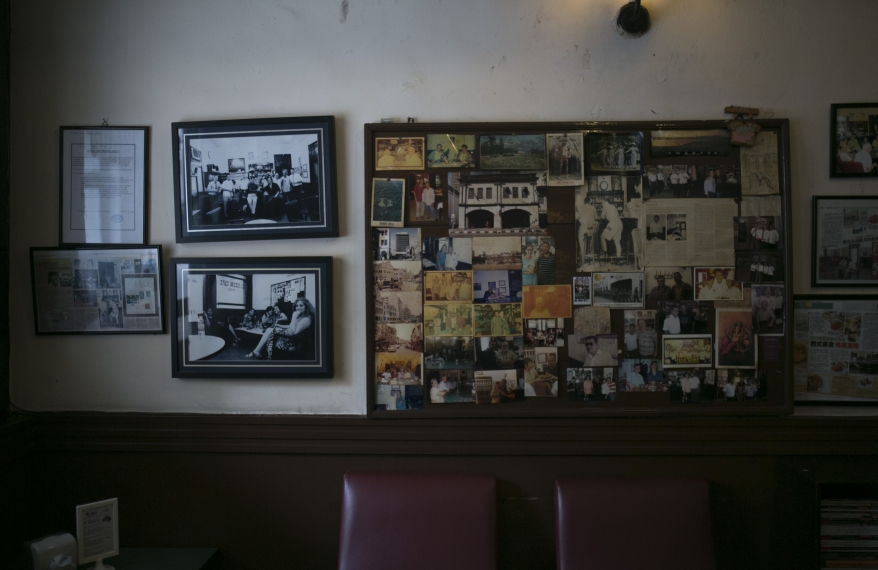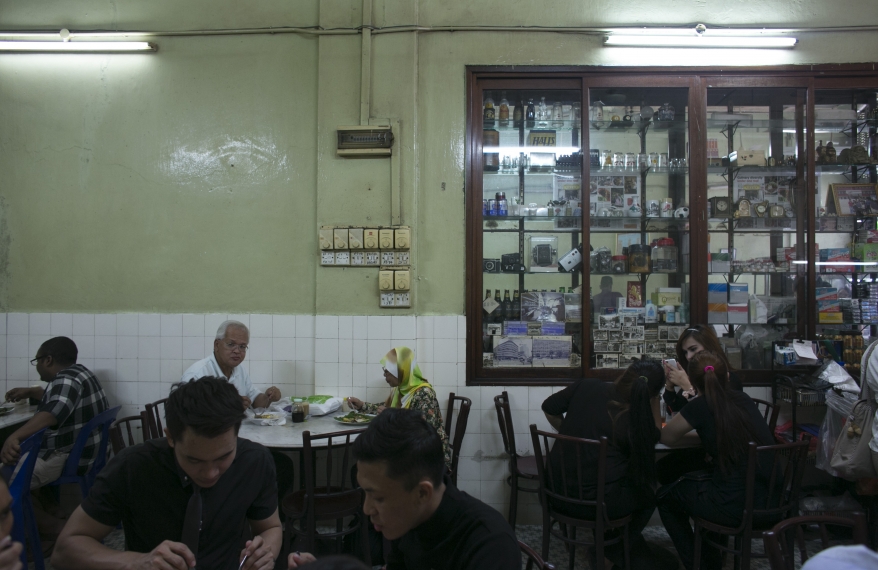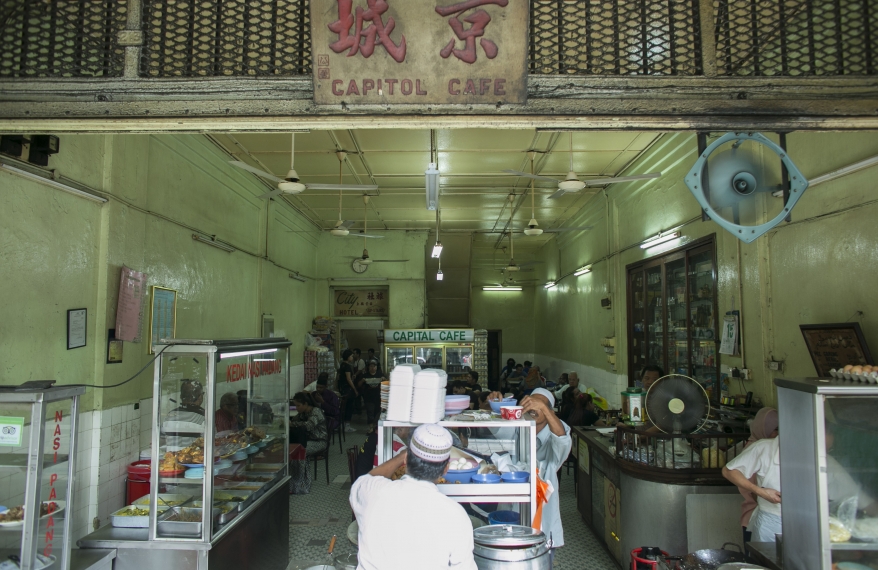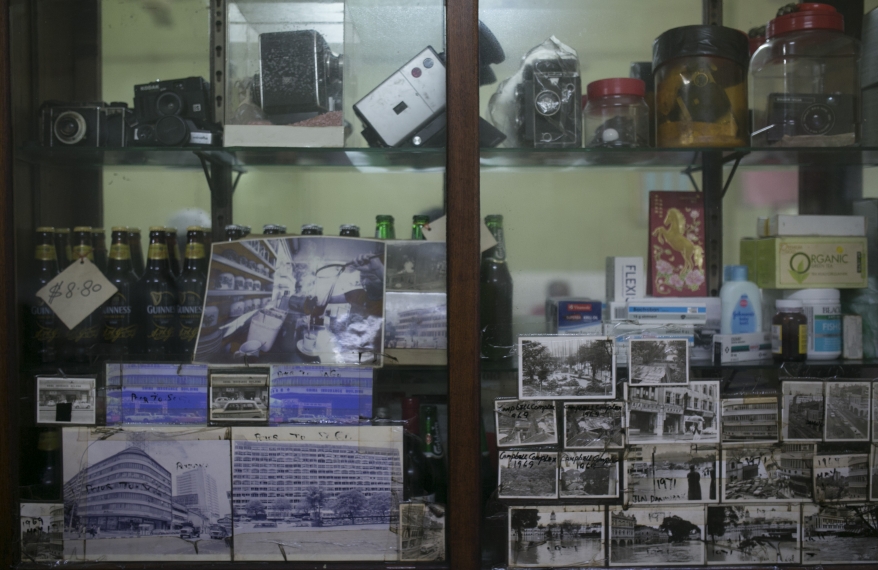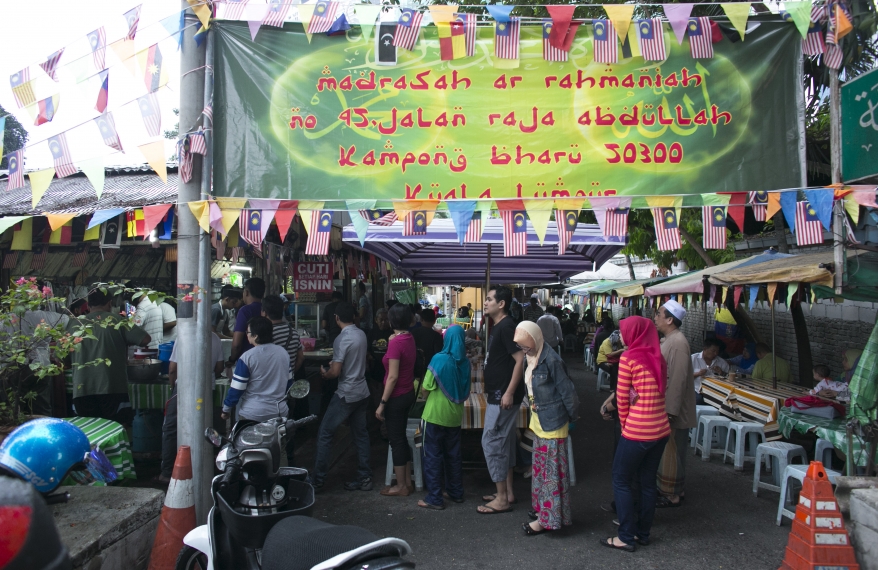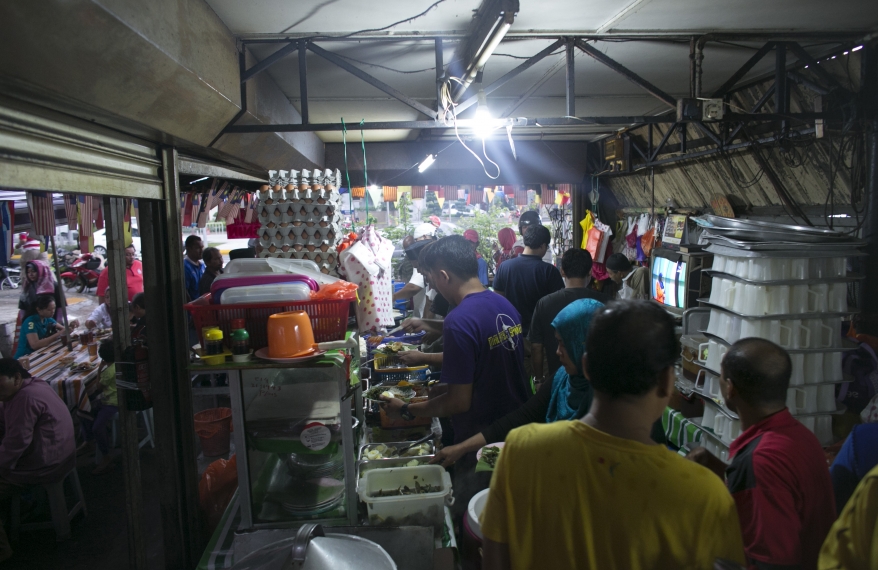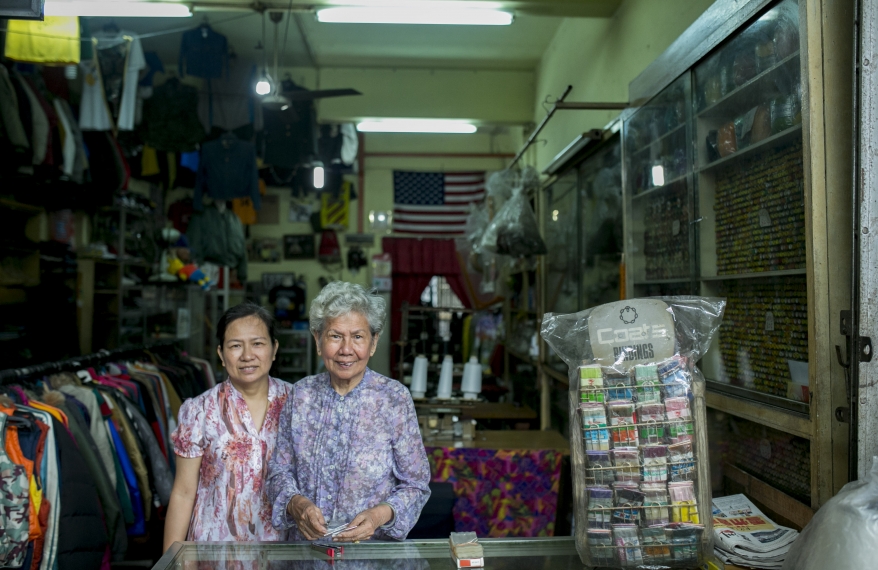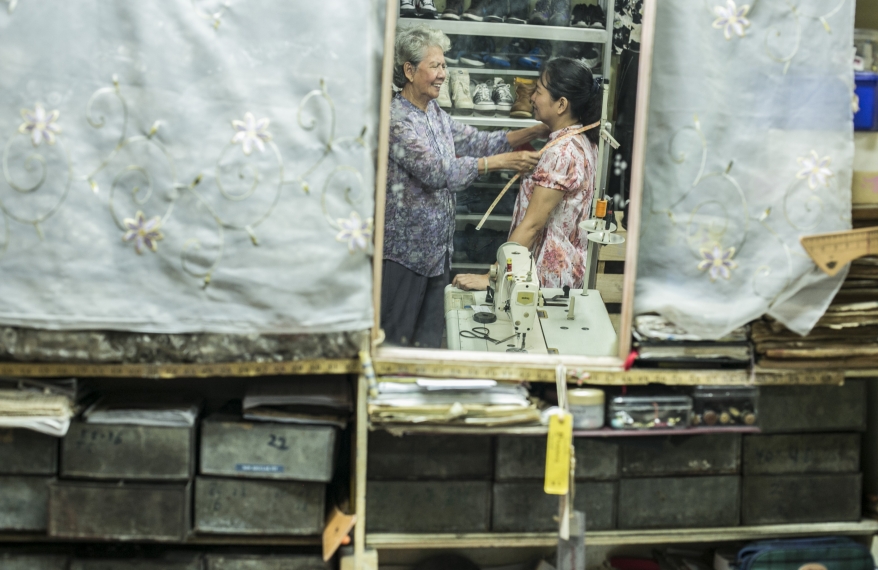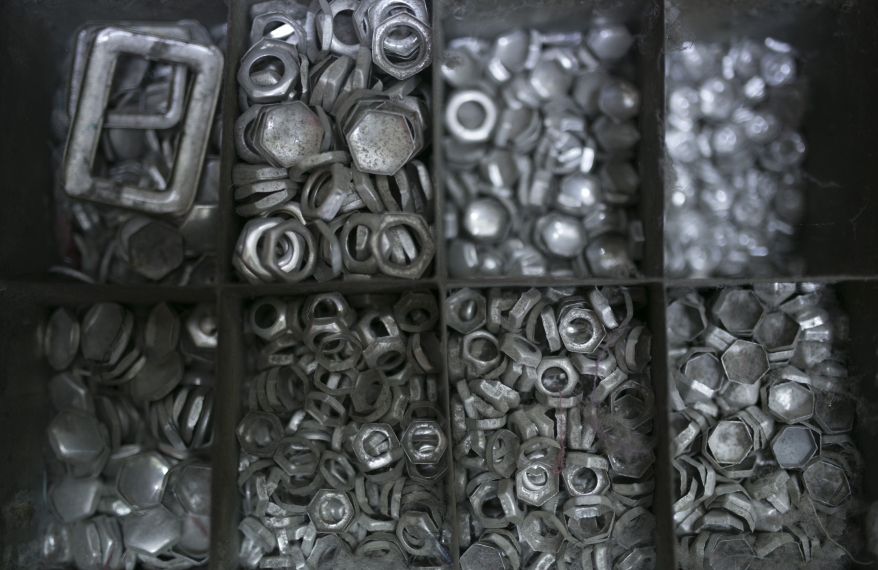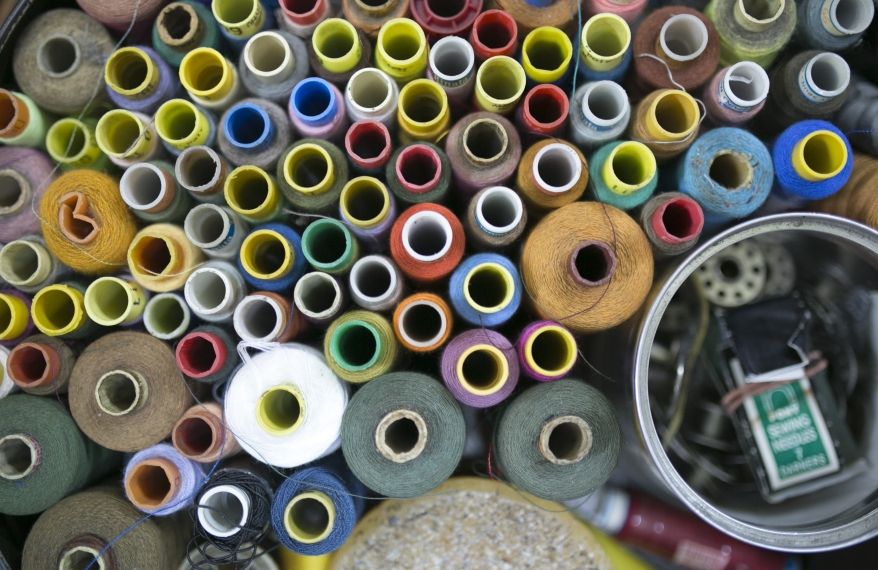Follow us on a nostalgia trail as we discover the rich memories central Kuala Lumpur holds beyond its glitz and glamour.
PUDU PERFECTION – Pudu Market
15 minutes by taxi from Concorde Hotel Kuala Lumpur
Established more than 50 years ago, Pudu Market is as real as it gets. Kuala Lumpur’s largest wet market is best experienced in its entire morning frenzy, with elderly people relentlessly haggling with grouchy shopkeepers. Here, one can buy any possible kind of vegetable, fruit and meats from live frogs to pig lungs. Makeshift stalls arranged in a haphazard way might confuse some, but do find your way towards the small outlets selling a range of local breakfast from dough fritters to Indian kueh, putu mayam and assam laksa.
If you’re up for a bowl of noodles, May King Lum Mee has been highly popular with locals for their noodles in thick broth and curry noodles since 1969. It’s next door to Chop Tow Yeat, a wholesale supplier carrying more than 1,000 kinds of eclectic household items like traditional Chinese chicken bowls, wedding teacups and dining sets.
FIELD OF HISTORY
20 minutes by taxi from Concorde Hotel Kuala Lumpur
Kuala Lumpur’s version of Little India is a riot of colours and flavours. Strolling down its main road, Jalan Tun Sambanthan, we can hardly walk in a straight path without being distracted by anything and everything from sprightly assortment of garlands and freshly deep-fried samosas to a music shop blasting the latest Bollywood music mix and heavily-discounted clothes. Located minutes away from the KL Sentral station, where the KLIA Ekspress ferries commuters from the airport, Brickfields is popular with backpackers and tourists looking for bargains and banter.
As one of the oldest settlements in the city, the area is peppered with historical colonial structures and earned its name as the de-facto location for quality brick-making in the early 1900s. It is also home to a number of religious associations that have been peacefully co-existing for centuries, including the Buddhist Maha Vihara temple, Zion Lutheran Church and Sri Kandaswamy Temple.
TREASURES OF PETALING
15 minutes by taxi from Concorde Hotel Kuala Lumpur
Home to a generation of rugged, determined pioneers way back in the early 20th century, Kuala Lumpur was the aspiration of many from China, mainly Hakkas and Cantonese who were drawn to the city’s tin trade and built a future from working as coolies in the mines. Kapitan Yap Ah Loy, the most famous headman, who led KL to victory during the civil war from 1870 to 1873, opened a tapioca mill here as a way of creating new avenues of work for the Chinese workers. This is why Petaling Street is fondly known as “Chee Cheong Kai”, or “Starch Factory Street” in Cantonese.
Gems in this area are scattered around Jalan Tun H.S. Lee, or High Street. They include the Old China Cafe, one of the oldest restaurants in KL that features spicy classics like nasi lemak, as well as Ali, Muthu & Ah Hock, a modern coffee shop that serves a mean ayam penyet.
A hop away is the Junk Bookstore. What started 23 years ago as a hobby for owner Adeline Tan slowly grew into a three-storey second-hand bookstore housing anything but junk. A treasure trove of about 13 million magazines, books, journals, which includes many out-of-print editions and some of which you can’t find anywhere else, the bookstore is probably “the biggest library in Malaysia,” said manager Jeffrey Koh, 62, who helps to run the store. This includes a rare 1949 edition of National Geographic magazine which goes for RM100 and many editions of the now-defunct Life magazine that date back to the 1980s.
Although dealing in second-hand books is a ‘cold trade’, Koh says he is more interested in meeting fellow book lovers. “The most important thing is we must know history, especially our own country’s history,” he said. “By reading you gain a wealth of knowledge, which is important for human beings. We need to know where we come from.”
LOST IN TIME ON JALAN TAR
10 minutes by taxi from Concorde Hotel Kuala Lumpur
Stepping into Coliseum Cafe, one can be forgiven for mistaking it for a movie set. Having been in business since 1921 at the same address on Jalan Tuanku Abdul Rahman (TAR), the cafe has been a steward of quality Western Hainanese cuisine loved by generations of fans including British government servants, army personnel and tin-miners from the days of colonial rule.
Its popular classic menu includes a sizzling steak served on a hot plate heated to 180°C, baked crab and Hainanese noodles concocted by old Hainanese master chefs who picked up these traditional dishes from their western bosses. “People have affiliation for the food and nostalgia,” said manager Peter Heng, who is in his 50s and started work at the cafe as a kitchen helper peeling onions and potatoes in 1978.
“The place is like a second home for me. Many of our customers return faithfully and always have stories to tell their children and grandchildren.”
In 2014, the cafe entered Malaysia’s Book of Records for the “Longest Operating Western Colonial-Themed Restaurant”. It now has three outlets, with its owners planning to open some 10 to 15 outlets over the next five years. “Many places are very modern but there are some who cherish old places,” said Mr Heng. “It is a comforting feeling.”
Just next door, the grand Coliseum Theatre, one of a few pre-war cinemas that still play films today, is also worth a visit. Built in 1920 by a prominent local family, the Deco-style building is capable of seating 900 people. Today, it screens mostly Indian movies. If you’re in the mood to discover KL by foot, a 20-minute walk down Jalan TAR towards SOGO mall will bring you to Capitol Cafe, an unpretentious institution of cultural diversity. At any time of the day, the humble coffee shop run by the Lin family is packed with a close-knit community of Malaysians from all races and age groups chomping down a range of authentic delicacies such as nasi padang, mee hailam, rojak and satay.
Old menus from 1956 hang proudly on the wall, while eclectic tiles with seahorse motifs and big, gold characters of the cafe’s name don the pillars at its entrance. Mr K.Y. Lin, 56, who manages the eatery with his siblings to honour his father, muses: “It’s a twilight zone. The tables and chairs which were around 50 years ago are still here today.”
Although the cafe has garnered a loyal stream of supporters for its history, taste of home and affordable prices, he is still unsure about its future. “It’s in my blood but it’s not in my children’s blood,” he laughed. “I’ll take it one day at a time.”
NEW OLD SPIRIT
10 minutes by taxi from Concorde Hotel Kuala Lumpur
It is seven in the morning on a sleepy, rainy Saturday and most of bustling Kuala Lumpur seem asleep. But in a humble alleyway tucked in Kampung Baru, or “new village,” a queue of hungry early birds has arrived for Pak Hassan’s nasi lemak.
In between stirring huge pots of coconut rice and fussing over woks of chicken feet curry, Pak Hassan, 68, smiles and greets the customers busy picking their choice of curries. “Eat first, pay later,” he says, guiding people along the line.
Having set up shop here since 1993, his recipes have attracted a loyal fanbase who love the fluffy, delicious roti canai. An estimated 40kg of rice and up to 130kg of chicken feet curry are sold every weekend. We heard that queues during the festive seasons can go round the block.
Kampong Baru, an odd, charming amalgamation of seven villages, is an enclave in the city hotly eyed by property developers, which have so far been unsuccessful in winning over village elders who want to preserve the ethnic Malay lifestyle. Designated as a Malay Agricultural Settlement in 1900 by the colonial British administration, the area has grown into a symbol of heritage against modern-city development. Historically, it has also been the venue of anti-colonial protests, racial clashes and early meetings of the United Malays National Organisaion (UMNO).
Today, the area is on the radar of enthusiastic foodies and heritage buffs. A breath of fresh air from the crowded skyscrapers in the background, the village paints a picture of timelessness with its stilt houses, frangipani trees and coconut palms. Mom-and-pop shops like Lee Sing Tailoring Material Supplier are living examples of its kampung spirit.
Madam Rena Siow, 54, who grew up in this shop and learnt the ropes from her parents, says she cherishes the place, as it is her family’s way of life. “If I didn’t take up sewing, nobody would inherit these skills,” she says. “We must cherish what our parents built for us because it is part of who we are.”
H Directory
Pudu Wet Market
Jalan Pudu, Kuala Lumpur
Opening hours: 6am to 1pm, daily
Chop Tow Yeat
36 Jalan Yew, off Jalan Pudu
May King Lum Mee
38 Jalan Yew, off Jalan Pudu
Opening hours: 9.30am to 5pm, daily. Closed on Mondays
Old China Cafe
11 Jalan Balai Polis
Opening hours: 11am to 11pm, daily
Ali, Muthu & Ah Hock
13 Jalan Balai Polis
Opening hours: 8am to 4.30pm, daily
Junk Bookstore
76 Jalan Tun H.S. Lee
Opening hours:
Mon to Fri: 8.30am to 3pm
Sat: 8.30am to 2pm
Closed on Sundays and PH
Coliseum Cafe
98-100 & 102 Jalan Tuanku Abdul Rahman
Opening hours: 10am to 10pm, daily
Capitol Cafe
213 Jalan Tuanku Abdul Rahman (Opposite SOGO)
Opening hours:: 10.30am to 7.30pm, daily. Closed on Sundays
Warung Nasi Lemak Pak Hassan
45 Jalan Raja Abdullah, Khatib Koyan, Kampung Baru
Opening hours: 7am to 1pm, daily
Closed on Mondays
Syarikat Lee Sing (Lee Sing Tailoring Material Supplier)
48 Jalan Raja Bot Chow Kit
Call +603 2920 069 for an appointment
Concorde Hotel Kuala Lumpur - Located within within walking distance to KLCC and major shopping areas.
Visit Hotel Website



